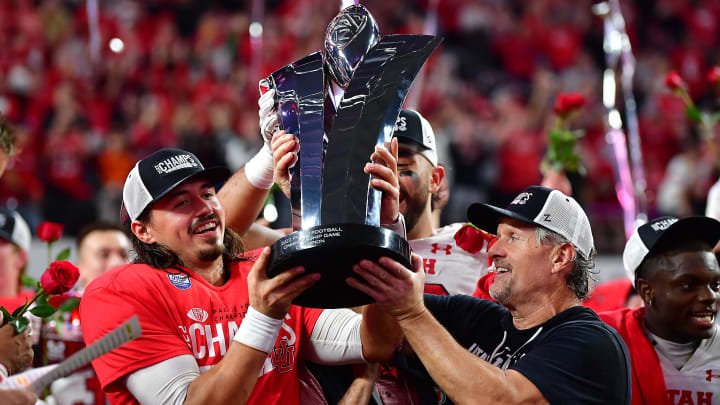Could Utah be part of private equity-backed “super league” in the future?

The possibility of Utah joining an equity-backed "super league" represents a significant shift in the landscape of college football, where the drive for increased revenue is pushing conferences to consider innovative, but yet controversial changes.
Even established conferences like the SEC are exploring new revenue streams, exemplified by their recent partnership with Southwest Airlines and the potential addition of a ninth conference game to enhance schedules and boost ticket sales and television revenue.
The idea of unequal conference revenue distribution is gaining traction, where programs that generate more revenue, like Texas, might receive a larger share compared to schools like Vanderbilt. This shift reflects the broader trend of college athletics moving away from traditional amateurism toward a more professional model. The pressure to change is driven by both internal dissatisfaction and external financial incentives.
SEC Commissioner Greg Sankey, one of the power players in college sports, acknowledges the need for change within the industry. He advocates for conferences to retain decision-making authority rather than ceding it to external entities. Sankey’s position underscores a desire for the sport to manage its own evolution, suggesting that conferences can adapt and innovate from within.
Utes players support Morgan Scalley as the "Right guy" after Kyle Whittingham retires
One of the significant potential changes on the horizon is the expected increase in control for power conferences under a new Division I governance model, a development stemming from the NCAA’s settlement of the House case. This shift in governance could pave the way for more centralized and effective management of college football, aligning with the broader trend of consolidation and professionalization in the sport.
But where does others stand on the idea of a "super league"? The Big 12 Conference, along with other major college conferences, may be hesitant to join a potential college football super league due to their unique identity and interests. The proposed super league would split the FBS in half, from 130 programs to 70, with a relegation system for the bottom 10 teams. Some say that the Big 12 might also lose autonomy if they join.
Ultimately, the pursuit of new ventures and revenue streams, such as equity-backed super leagues, is driven by the financial disparity between different programs. Schools like Tennessee, Michigan, or Florida, or Oregon which could potentially earn $200 million annually from new ventures compared to $70 million from their current conference arrangements, exemplify the financial incentives pushing these changes. However, Sankey cautions that simply injecting more money into the system does not address the core issues causing upheaval in college athletics.
The ongoing discussions and explorations of new opportunities within conferences, as described by Sankey, highlight a proactive approach to managing the sport's future. While external pressures will continue to influence the direction of college football, there is a clear emphasis on maintaining control and making decisions that best serve the interests of the conferences and their member schools.
The discussions within the SEC and other conferences indicate a willingness to explore new ideas and adapt to the evolving landscape, with an emphasis on retaining decision-making authority and addressing the fundamental issues driving change.
